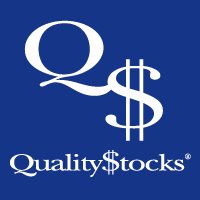Zenosense, Inc. (ZENO) Lung Cancer Detection Devic
Post# of 53

Zenosense currently holds an exclusive global license agreement for the development and marketing of revolutionary sensor devices designed to detect the MRSA “Super-Bug” (Methicillin-resistant Staphylococcus aureus), as well as lung cancer, in the exhaled breath of patients via a proprietary fusion of technologies that can actually sniff out associated VOC (volatile organic compound) biomarkers. Currently, lung cancer is the leading cancer killer and results in some 1.6M deaths per year, or more than the next three most common types of cancer combined, according to World Health Organization statistics.
Until recently, a widely accepted screening technology for accurately detecting early-stage lung cancer has not been readily available (ultrasound and X-Rays are largely ineffective at catching tumors early). The low-dose computed tomography (LDCT) scans which have emerged are rather involved for the patient and the healthcare facility administering them, they carry the same or greater component risks as a typical CT scan (which can damage DNA and actually trigger tumor growth), they lack robust specificity (high false-positive rate), and LDCT scans typically run somewhere in the ballpark of $500 a pop. Moreover, in lung cancer cases, as is the case with MRSA infections, early detection is key (making cumbersome or costly testing methods untenable for many) not only for survival rates and delimiting damage to the patient’s body, but for curbing the systemic cost impact to the healthcare system as well.
The global market for drugs alone to treat NSCLC (non-small-cell lung cancer), the most common type of lung cancer, accounting for around 90% of all cases, is on track to hit $6.9B by 2019, led by companies like AstraZeneca (NYSE: AZN), Roche (OTCM: RHHBY), and Merck (NYSE: MRK). In fact, the overall treatment market is estimated as growing at a CAGR of roughly 4.84% over the same interval, with yet-emerging markets like India seeing a much higher CAGR of around 13.47% through 2015, according to a GBI Research report which was published in September of 2014 by Transparency Market Research.
Looking at the sprawling global cancer diagnostics market, lung cancer accounted for the largest share of the space last year and is estimated as continuing to grow alongside cancer runaway incident rates, steadily rising for the foreseeable future. Hence the significance to investors of a device like the one being developed by Zenosense (OTCQB: ZENO), under an agreement with European sensor developer Sgenia Group, via Sgenia’s Zenon Biosystem subsidiary. Estimated manufacturing costs for the device(s) of only $100, or possibly as little as half that sum, due to incredible advances made by Sgenia/Zenon in the field of sensor engineering technologies, promises to bring to market an affordable, highly-accurate system for early detection of both deadly bacteria and certain cancers.
Utilizing established Sgenia programming and patent-pending hardware, the devices create tens of thousands of “virtual sensors” off of a single physical sensor, allowing for a nearly infinite number of scans to be rapidly performed. Designed to simply be worn by patients and/or be placed in sensitive areas in primary healthcare settings, the lung cancer detection device continuously monitors patient headspace for exhaled breath, which is then screened for the relevant biomarkers. An ingenious fusion of biochemistry, microbiology, molecular biology, nanotechnology, polymer electrochemistry and sensor engineering with high-level mathematics, the company’s devices may hold the key to saving countless lives through early detection and, in the case of healthcare acquired infections (HAIs) like MRSA alone, as much as $31.5B a year in medical costs inside the U.S. (CDC data).
As of November 2014 the company had reported manufacturing of a pre-commercial prototype lung cancer detection device and subsequently announced in December that Zenon had entered into a collaboration agreement to run a 400-patient trial with a university and large university hospital in Madrid. Given the relative treatability of lung cancer when it is still in Stage 1, the success of a non-invasive and cost-effective screening device like this, which could be ubiquitously disseminated throughout the healthcare system, could lead to the device becoming an industry standard, as well as huge revenue streams for ZENO.
For more information, visit www.zenosense.net
Please see disclaimer on the QualityStocks website: http://Disclaimer.QualityStocks.com
 (0)
(0) (0)
(0)